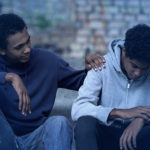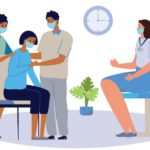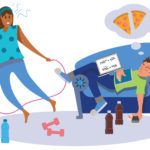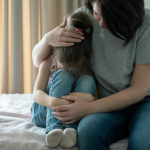Losing a parent or caregiver to COVID-19: Advice for families
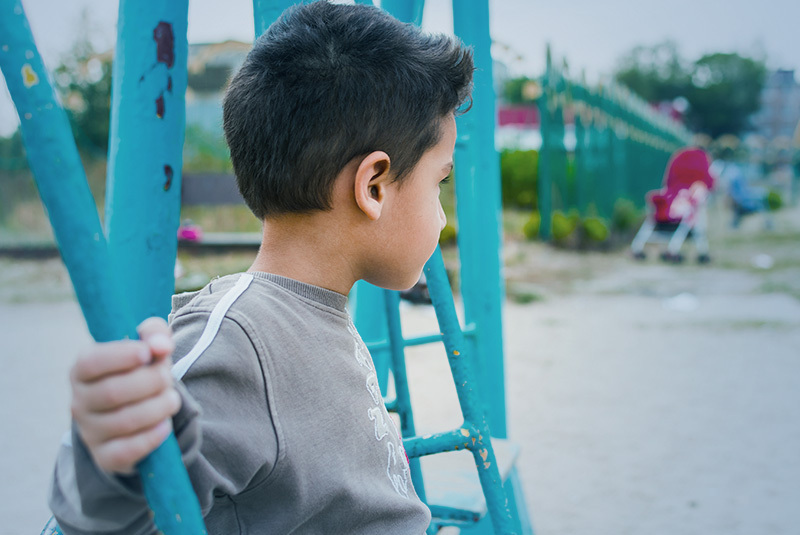
Ed. note: This story was updated on October 7 with new data on COVID-19 deaths.
A recent international study estimated that at least 104,884 U.S. children lost one or both parents to COVID-19. And that was as of April 20, 2021, before the highly contagious Delta variant became widespread. A more detailed study of U.S. deaths in Pediatrics extends the cutoff date to June 30, 2021 and estimates that more than 140,000 children have lost a parent or grandparent caregiver, with children of color much more likely to be bereaved.
Losing a parent is traumatizing, causing great anxiety and sadness. “We know that loss of a parent or caregiver can upend children’s lives and even affect their development if they are not in a stable home setting,” says Dr. Charles Nelson of Boston Children’s Hospital who studies the effects of adversity on brain and behavioral development.
Because of COVID-19 restrictions, many of these children may not have had the chance to say goodbye or attend funerals or family gatherings. This makes it even harder to go through the grieving process. Children may fear their own death or that of others in their lives. Meanwhile, family members may be struggling with related challenges such as lost income, child care, and their own grief and loss, and have little time to focus on the child.
How do children respond to losing a caregiver?
“How children handle this trauma will depend on how they were doing before, what support systems are in place, and how well surviving parents or caregivers are able to meet the child’s needs,” says Dr. Michelle Bosquet Enlow, a psychologist at Boston Children’s who studies how stress and trauma affect child development. “Children with a strong network — family, community, neighbors who can rally around them — tend to do better.”
How children respond also differs by age, says Dr. Elizabeth Rider, a Boston Children’s pediatrician and former child and family therapist. Toddlers and preschoolers may become clingy and regress from previous milestones like potty training. School-age children may ask many questions, including “why?” Teenagers tend to think more abstractly and may ponder what the situation means for their future. Some may turn to substance use and other risky behaviors.
Fortunately, long-term studies after disasters such as Hurricane Katrina suggest that trauma distress symptoms usually decrease over time, especially in younger children. Below are some suggestions to help children navigate the loss during the early days.
Acknowledge the situation.
Answer questions gently, but directly and honestly. Respect and validate the child’s feelings and share your own so they know they’re not alone. You may need to build trust if you are stepping in as a caregiver, so avoid promises that may not be possible to keep. It could take some time for the death to “feel real” to the child, and that’s OK. Let them know you are available to talk more.
Allow them to express their feelings.
Listen and try not to judge. Some children may not be able to verbalize their feelings and may express trauma by acting out. Even children as young as 3 may display aggressive behaviors like biting, and some may be labeled as “problem kids” at school. Let them know it’s OK to be angry, but not OK to hurt anyone or break things. Help them find creative outlets for their emotions, such as journaling, art projects, listening to music, dancing, exercise — whatever helps. Crying is always OK.
Try to preserve normal household routines.
Establishing a morning wake-up time, a realistic bedtime, meal times, quiet times, and alone time will help create a feeling of safety and stability. Ensure that the child knows family members’ whereabouts and schedules. Set clear, consistent limits, but also allow time for them to play, relax, and connect with friends, even if only on Facetime.
Remember and honor the person who passed away.
You shouldn’t consider this a taboo subject. Talk about the parent or caregiver who died by telling stories, looking at pictures together, and sharing remembrances of what they were like and how they lived — not how they died.
Be alert to potential distress.
Bereaved children may have sleep disturbances, disordered eating, or physical symptoms like tiredness, headaches, or stomach aches that seem to have no medical explanation. Watch for mood changes, irritability, withdrawal, emotional numbing, and feeling overwhelmed — signs the child is anxious and depressed.
These are normal responses. However, be alert for intense fear or panic, helplessness, inability to make decisions, extreme detachment, self-harm such as cutting, and talk of suicide. These are signals that the child should have a mental health evaluation as soon as possible.
Get support for yourself.
Try to engage with people and activities that bring you comfort. Get fresh air, eat well, get enough sleep, and reach out for help. Support groups can be helpful, as well as mental health services. Telehealth visits may be more readily available and don’t require missing as much school or work.
“The analogy is the oxygen mask on the plane,” says Dr. Bosquet Enlow. “Caregivers need to take care of their own mental health so they can take care of their children most effectively.”
Further reading
Supporting Children and Teens When Someone Dies of COVID-19 (PDF) from the Dougy Center/The National Center for Grieving Children & Families
Responding to Change & Loss: In Support of Children, Teens & Families, a toolkit from National Alliance for Grieving Children
Grieving During Social Distancing, advice for parents of teens and friends of bereaved families
The Power of Parenting During the COVID-19 Pandemic: Mourning the Death of a Loved One (PDF) from the National Child Traumatic Stress Network
Helping Children with Traumatic Separation or Traumatic Grief Related to COVID-19 (PDF) from the National Child Traumatic Stress Network
See more COVID-19 parenting resources
Related Posts :
-

COVID-19 takes its toll on kids’ mental health
As experts warn that increasing behavioral and mental health challenges could represent a “second wave” of the pandemic in kids ...
-

Suicide prevention in teens: Can we intervene through primary care?
The past year has seen a disturbing rise in suicidal thoughts and attempts among adolescents, with a spike of suicidal ...
-

Eating disorders in the time of COVID: Advice for parents
As the COVID-19 pandemic has worn on, it has led to a secondary epidemic of eating disorders among children and ...
-

Talking with your child about loss and death
The death toll from COVID-19 has recently surpassed more than 400,000 in the United States and continues to climb. This means ...


